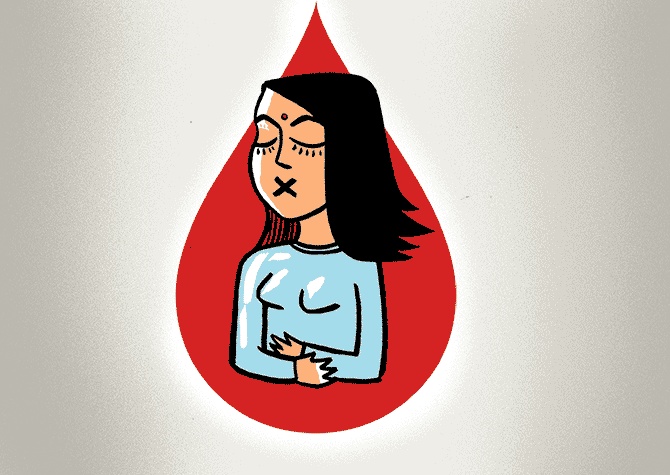3.6 times increase in early puberty during lockdown
June 09, 2022 16:45

The incidence of early puberty, especially in girls, increased 3.6 times during the Covid lockdown, a study by researchers at a Pune-based hospital has found.
The exact cause is not known but the possible reasons for idiopathic central precocious puberty (iCPP) in children as young as eight-nine during the pandemic are many, including stress, increased use of mobile phones and also sanitisers, researchers at the Jehangir Hospital said.
In the study, published in the Journal of Paediatric Endocrinology and Metabolism recently, researchers found that 155 (5.1 per cent) of the 3,053 referrals to the hospital were related to precocity as opposed to 59 (1.4 per cent) of 4,208 before the pandemic.
Increased use of mobile phones, late sleeping hours, stress, anxiety, depression, all are known to cause precocious puberty and all these factors have been prevailing during lockdown, said Anuradha Khadilkar, deputy director and consultant paediatrician, Growth and Paediatric Endocrinology Unit, at Jehangir Hospital.
Since sanitisers were extensively used during lockdown, it is possible that increased exposure to triclosan may have stimulated early puberty in children.
However, more studies are required to confirm this association, Khadilkar, the corresponding author of the study, told PTI.
Triclosan is an antibacterial and antifungal agent present in products such as toothpaste, soaps, detergents, sanitisers, toys and surgical cleaning treatments. It is recognised as an endocrine disrupting chemical (EDC) that is known to alter the timing and progression of puberty, the researcher added.
India went into lockdown in March 2020. Schools in Maharashtra, as well as other parts of the country, began to open in a phased manner between October to December 2021.
The researchers analysed two groups: a pre-Covid lockdown group from September 1, 2018 to February 29, 2020, and another from March 1, 2020 to September 30, 2021. A 3.6 times increase in the referrals for precocious puberty was observed during the Covid lockdown period. Amongst these, a significant increase in the referrals was seen among girls, the authors of the study noted.
The study also found that the proportion of referrals for precocious puberty was significantly higher in the lockdown (4.4 per cent) among both genders Restriction of outdoor activity, increased screen time, consumption of high calorie foods and binge eating habits resulting in increased obesity may result in an earlier onset and accelerated puberty, it said.
Dr Chetan R Mundada, lead paediatric intensivist at Hyderabad's Yashoda Hospitals, added that chemicals found in personal care products such as perfumes, deodorants, toothpastes and makeup kits have been linked to early puberty especially in girls.
The pandemic has led to drastic increase in the use of sanitisers. To make them more appealing with pleasant odour, chemicals like phthalate are added... (this) may lead to hormonal imbalance, Mundada, who was not involved in the study, told PTI.
The pandemic has also led to a more sedentary lifestyle with increased junk food consumption, increased obesity. All these factors together can lead to early puberty and future complications related to it, he added.
Dr Vaman Khadilkar, one of the authors of the study and senior paediatric endocrinologist, said the prevalence of precocious puberty -- children physically turning into adults too soon - was on the rise in pre-Covid times as well.
During the lockdown months, however, there was a sudden spike. "Initially we thought that since parents are at home, they are observing their kids more carefully and that is why they are coming to consult doctors more often. But this was untrue as we saw an actual rise in the incidence," Varman Khadilkar, also from Jehangir Hospital, told PTI.




 © 2024 Rediff.com -
© 2024 Rediff.com -